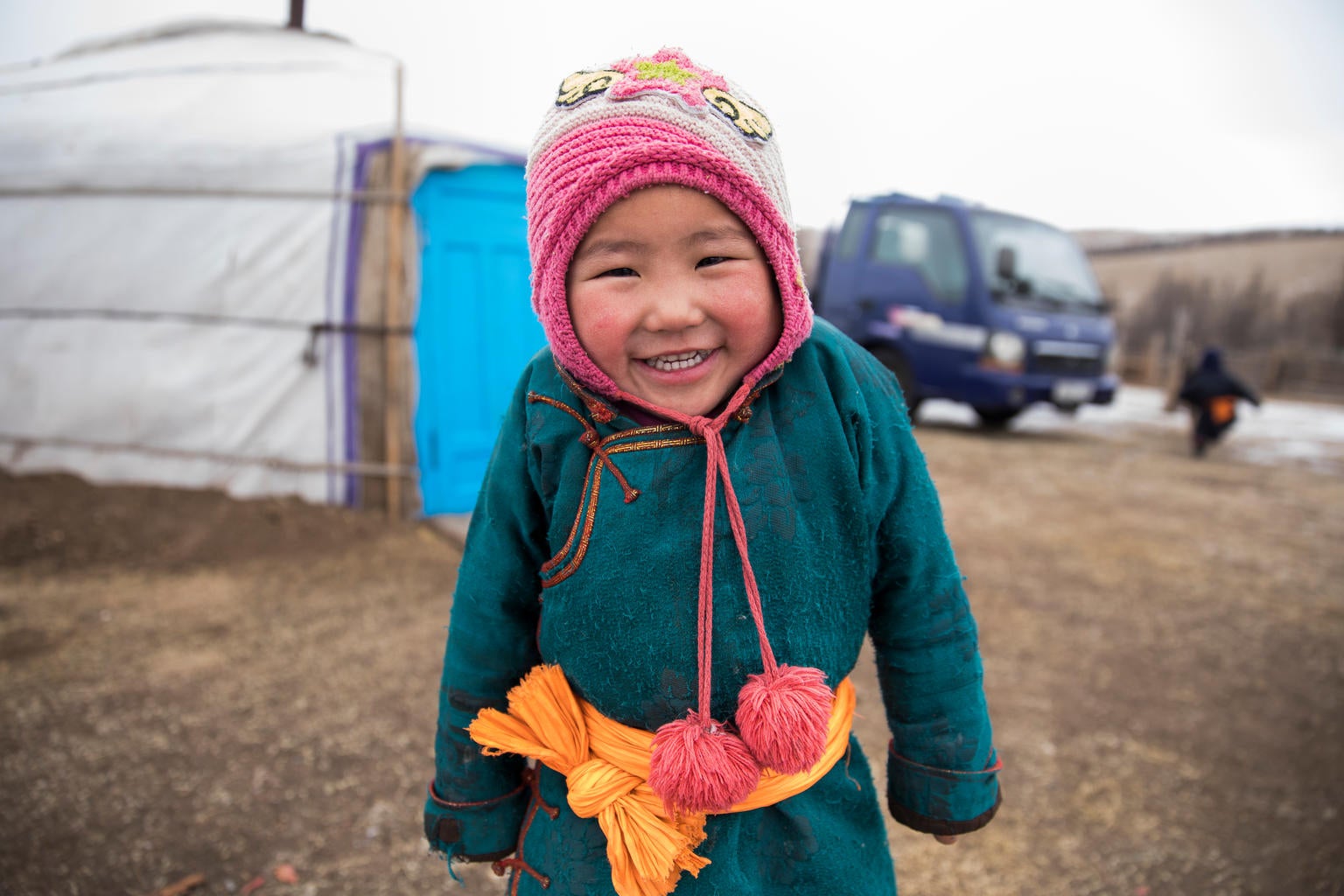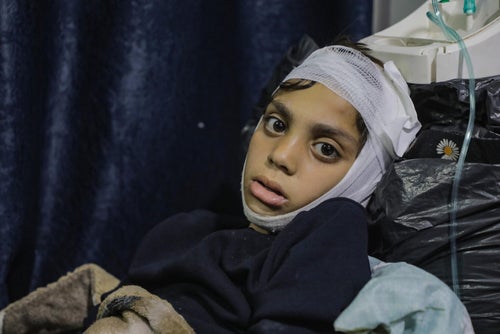The world has been rocked by some of the worst natural disasters in decades. Conflict has plunged children into new depths of suffering and more families are leaving their homes behind to flee violence, war and conflict.
And still, despite all this, there have been incredible moments of hope and joy around the world.
Before 2019 comes rolling in, we take a look back at the year that was to acknowledge the work our UNICEF colleagues have done with your help, in some of the most complex corners of the world.
Indonesia
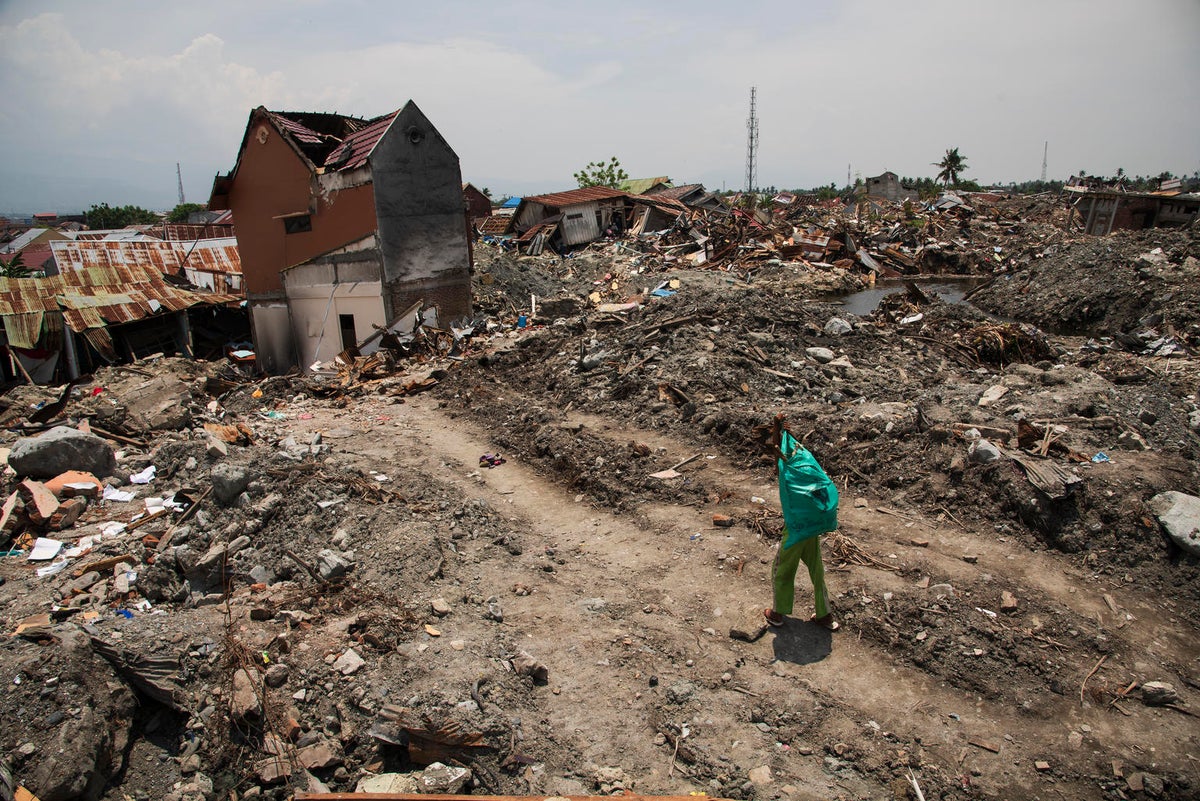
The tremors had stopped and the fierce winds had subsided by the time Sophia returned to her damaged home. But just days earlier, a powerful earthquake and tsunami devastated her home in the once palm-fringed bayside area of Sulawesi, Indonesia. She will never forget how she ran desperately to get away from the waves that engulfed large swathes of the shoreline.
Sophia, 11, slept in a tent which she shared with nine other family members and neighbours in the hours after the devastation hit. She lost some of her closest possessions: her school bag full of books, her computer and her favourite Disney movies, Frozen and Moana. She was also devastated to see her school turned into ruins.
When the tsunami hit, UNICEF raced to bring in tonnes of essential supplies. Sophia's school was one of the first to receive the 450 school tents and 300 school-in-a-box supplies - which has all the essentials for students to learn.
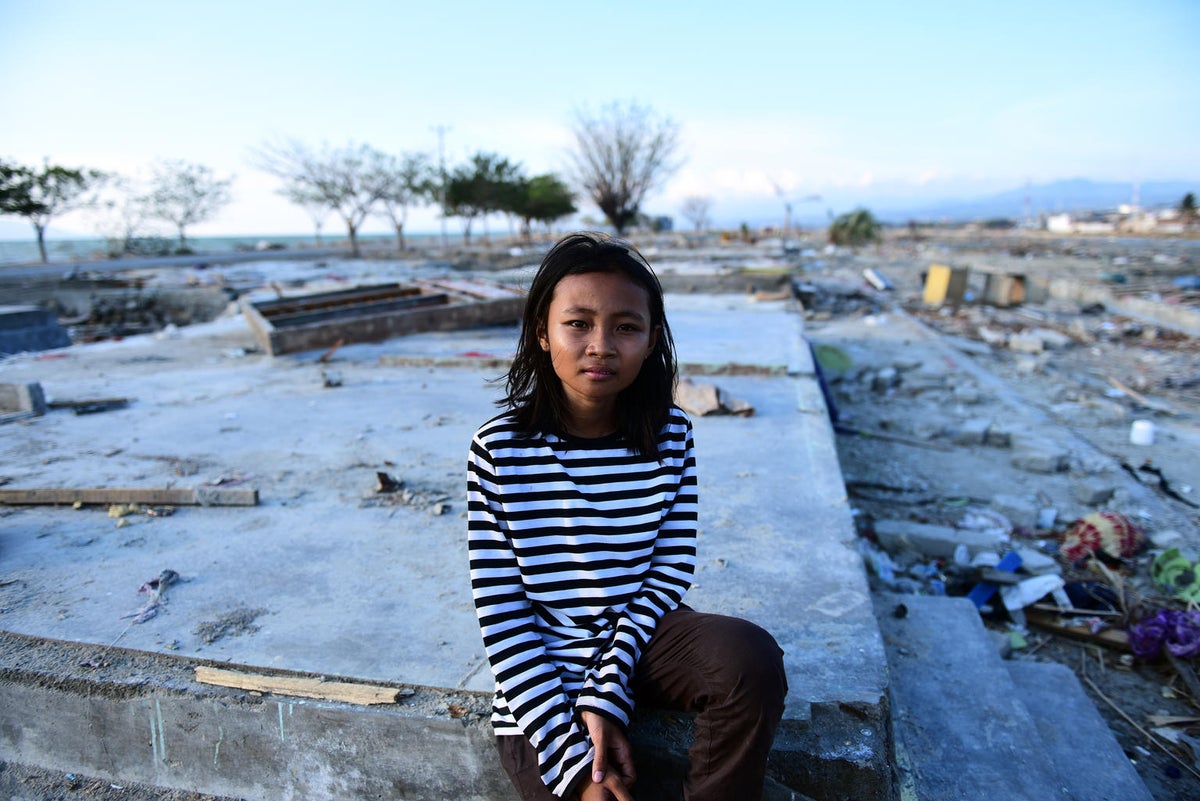
Central African Republic
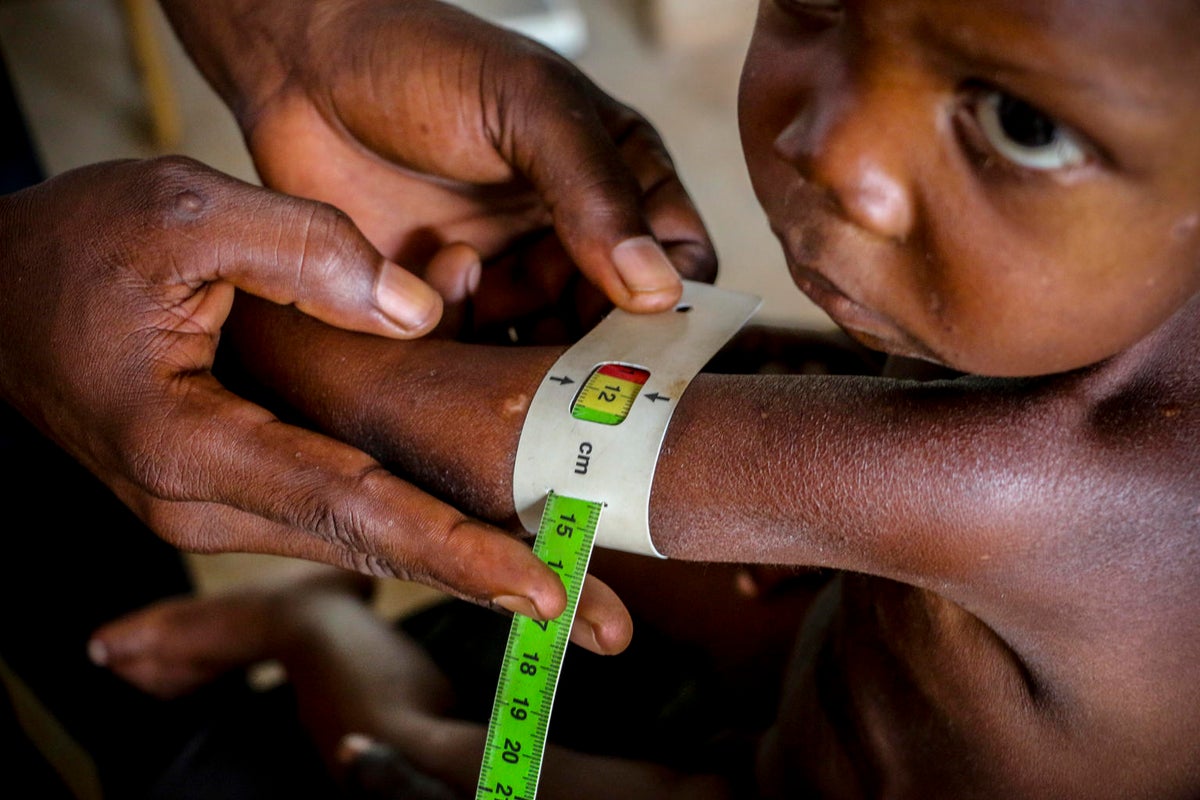
Pierre was born in the second worst country in the world to be a newborn. Since his birth, his life has been made difficult by the ongoing conflict in the Central African Republic.
Earlier this year, Pierre was repeatedly falling ill and his weight dropped to just 9kgs. His father, Prosper, walked 12km to the nearest health facility carrying a starving Pierre in his arms.
"I didn’t know if I was going to get to the hospital with Pierre alive. Even if I made it I didn’t know if he would make it,” says Prosper.
When they arrived at the UNICEF-supported health centre, doctors rushed to stabilise Pierre. After days on around-the-clock care, the three-year-old started to regain some strength.
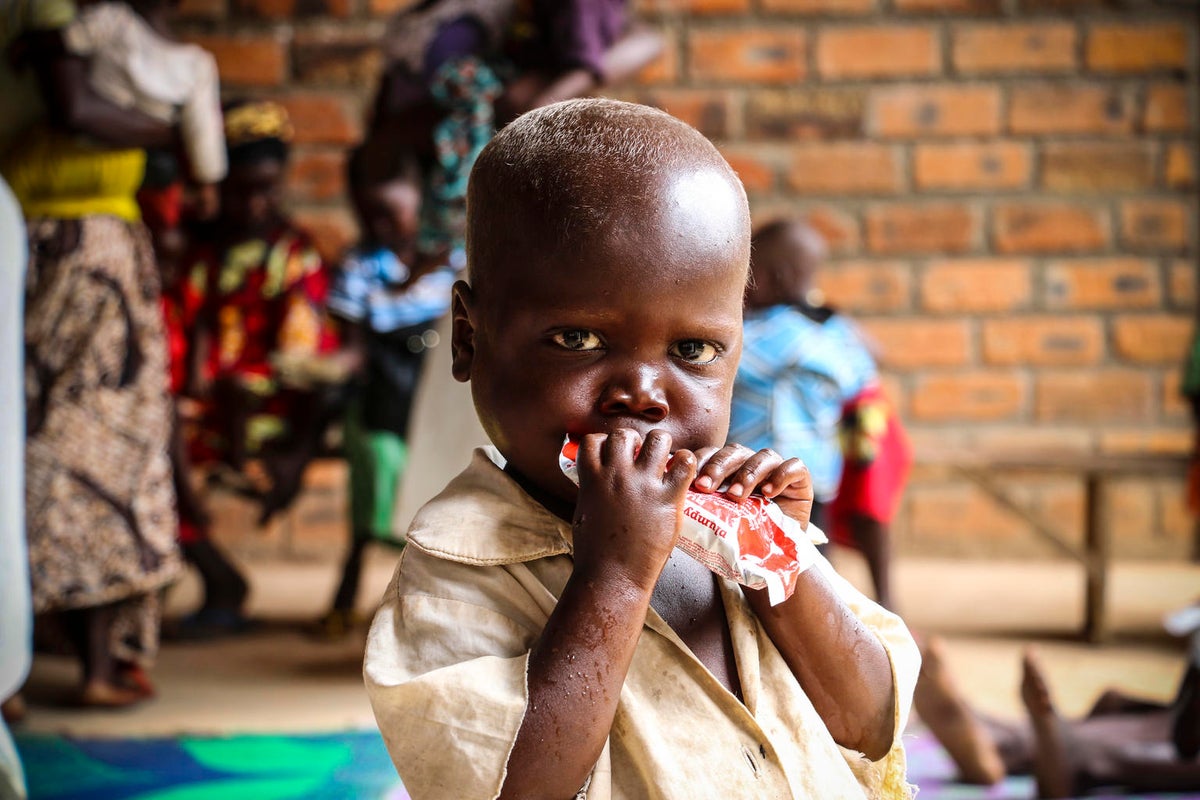
Pierre eventually returned home where he received regular health checks and a supply of Plumpy'nut® to help him put on weight. He still clings to his father, but he smiles again and laughs when he is placed in the bucket that he’s weighed in at the health centre.
Papua New Guinea
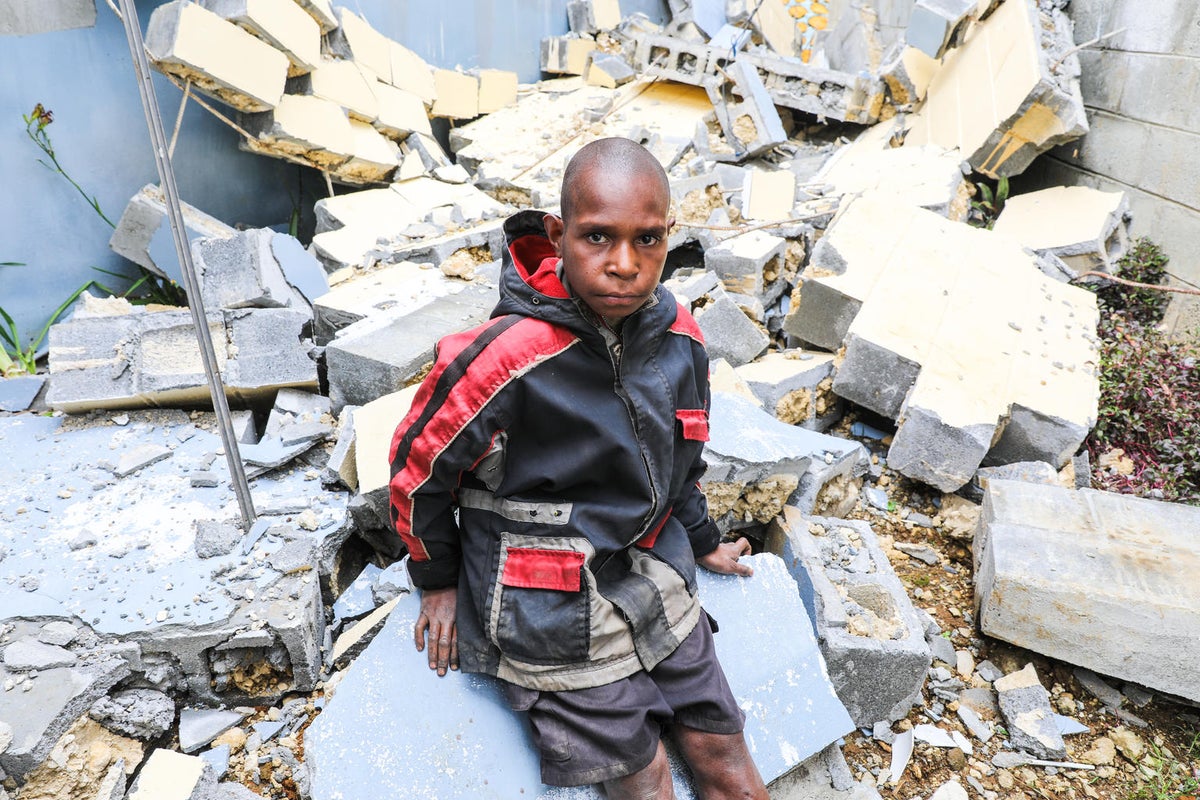
There are very few places in the world that are as remote and isolated as Papua New Guinea's highlands. So much so, that after a 7.5 magnitude earthquake struck in the Southern Highlands province, emergency workers had to be flown in by helicopter.
The earthquake and subsequent quakes tore through PNG earlier this year, leaving a quarter of a million children in urgent need of food, clean water and shelter.
"There were no roads in and no roads out," UNICEF Representative for PNG, David McLoughlin says.
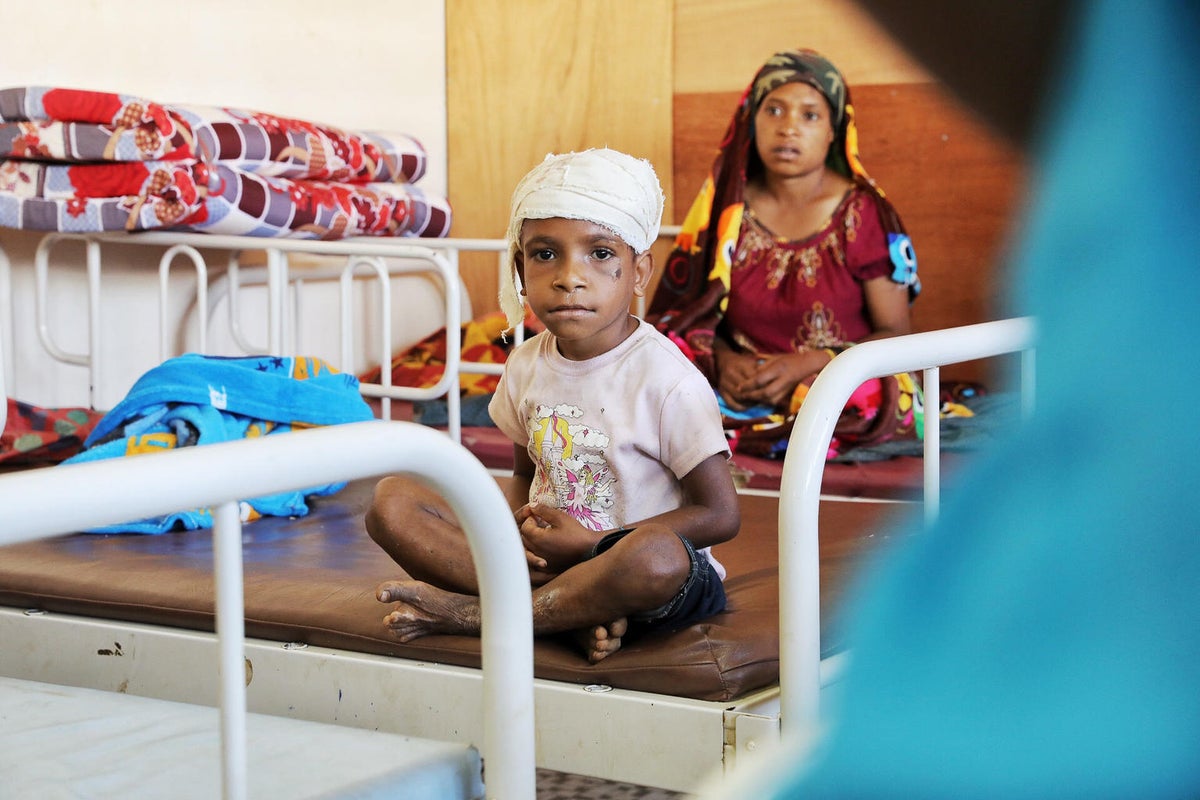
Douglas was hit in the head by falling rocks during a series of landslides triggered by the earthquake. The five-year-old was lucky enough to survive but 11 others in his town were killed.
While the immediate devastations of the earthquake were behind him, Douglas had to face the horrible reality of returning to his village where he and his family would need to rebuild their home and crop.
Today, UNICEF is still working with partners and the PNG government to provide medicine, vaccines, clean water, hygiene kits and safe spaces for children like Douglas to access services.
Bangladesh
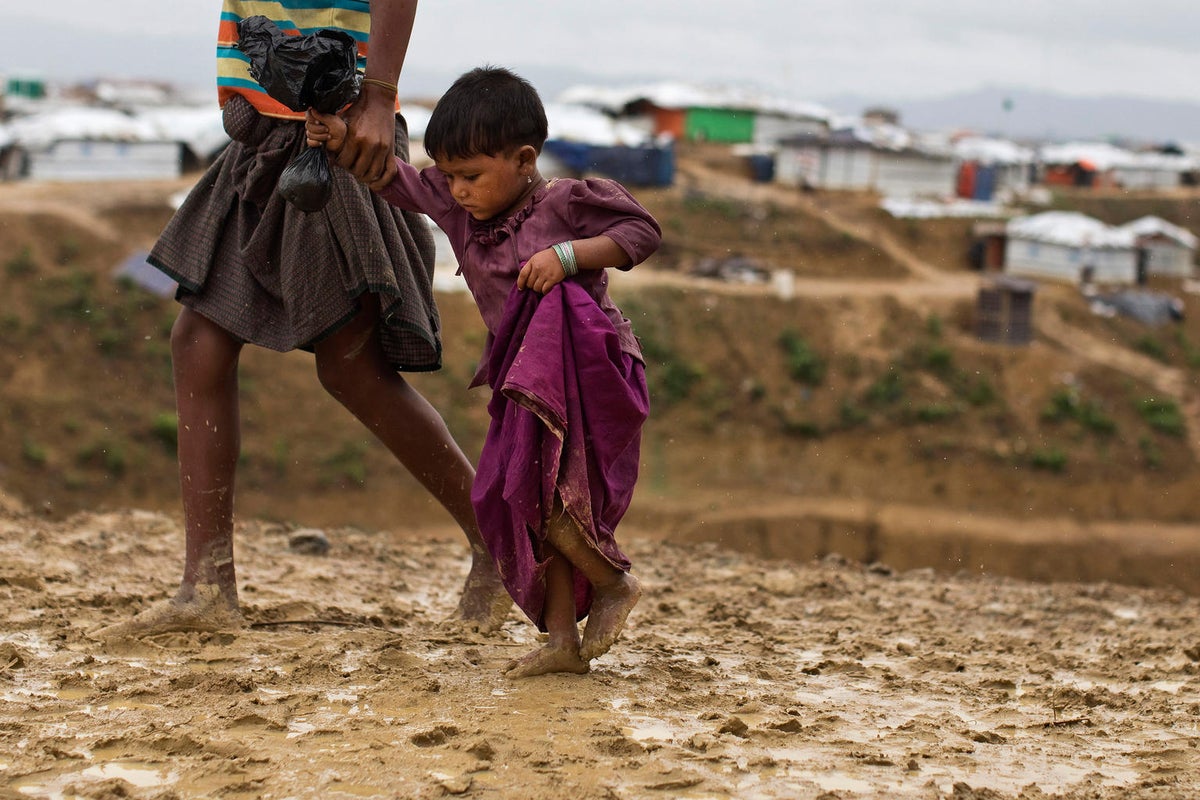
It started out as a man-made disaster. Hundreds of thousands of Rohingya children and their families fled extreme violence and mass killings in Myanmar. They arrived on the shores of Bangladesh and built shelters out of bamboo and tarpaulin in overcrowded camps.
Then, in the months that followed, it quickly turned to a natural disaster. Monsoon rains brought greater devastation and pain to the Rohingya people - triggering landslides, damaging shelters and taking lives.
But the destruction could have been much, much worse. Months of preparation - including moving people from landslide-prone areas and reinforcing shelters and infrastructure - helped reduce the amount of devastation across the camps and UNICEF supported shelters.
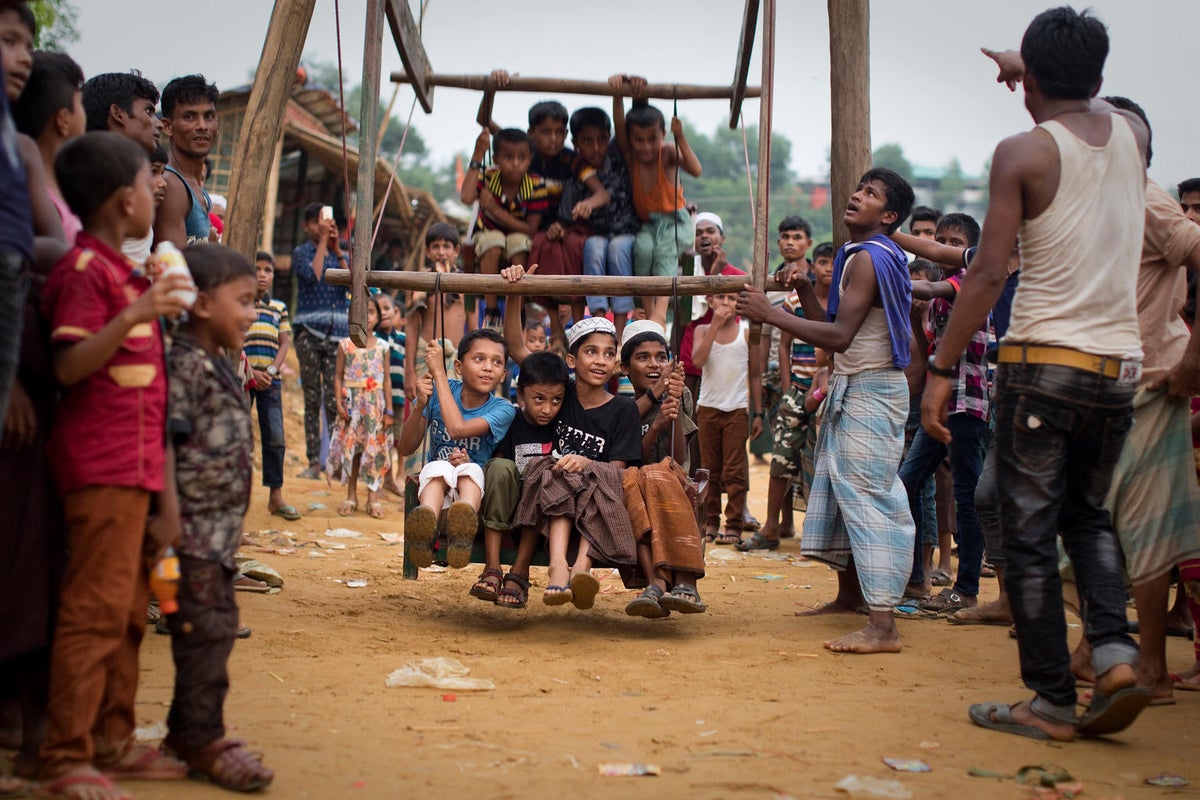
Despite all this, the Rohingya refugees wanted to bring some joy and happiness to children so they built their very own ferris wheel.
Jordan
The first generation of children born in the Za'atari Refugee Camp started school this year. Little Manal, 6, was one of them.
"My favourite colour is red and red is for apples. I want to be a teacher just like mine," Manal says.
In Jordan, only 59 per cent of five to six year-old children are enrolled in Kindergarten. It is an alarming figure, given we know positive experiences in the early years of a child's life shape their growing brain.
"They are the same as children all over the world," Manal's Kindergarten teacher says. "They need to be prepared for school."
UNICEF has been working in the Za'atari Refugee Camp since it opened in 2012, helping provide essentials like clean water, protection, health and education to the more than 44,000 children who live there and their families. Eighty babies are born on average every week in the camp.
Today, we are helping increase the number of children in school in Jordan by building 11 new kindergarten centres in the camps to meet the growing demand.
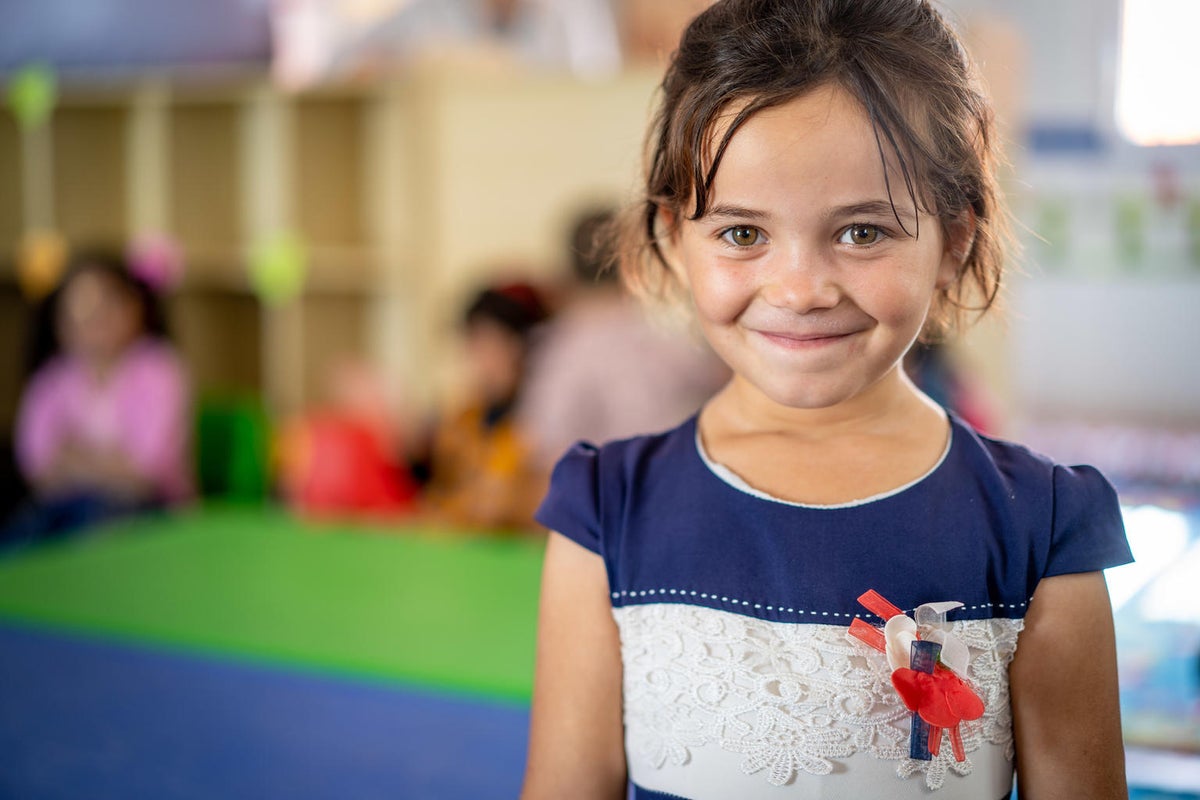
Yemen
After almost four years of ongoing conflict, children in Yemen are now faced with another struggle. The fight for food.
Worsening years of underdevelopment, attacks against civilians and infrastructure and a lack of salary payments for most civilian workers have pushed basic services for children to the brink.
More than 7 million children go to bed hungry each night. Behind these stark numbers are children with names, faces, families, friends, stories and shattered dreams.
Donate to Children in Yemen
It is eight years into the conflict in Yemen, and the situation is only getting worse.
Safa is one of the severly malnourished children receiving treatment in a hospital in Sana'a, Yemen's capital. But despite the bleak surroundings, and the relentless fighting, Safa still manages to smile.
UNICEF is one of the only humanitarian organisations on the ground in Yemen and is expanding its response to delivery emergency support to these children including increasing the number of treatment centres and training community health workers to identify early stages of malnutrition.
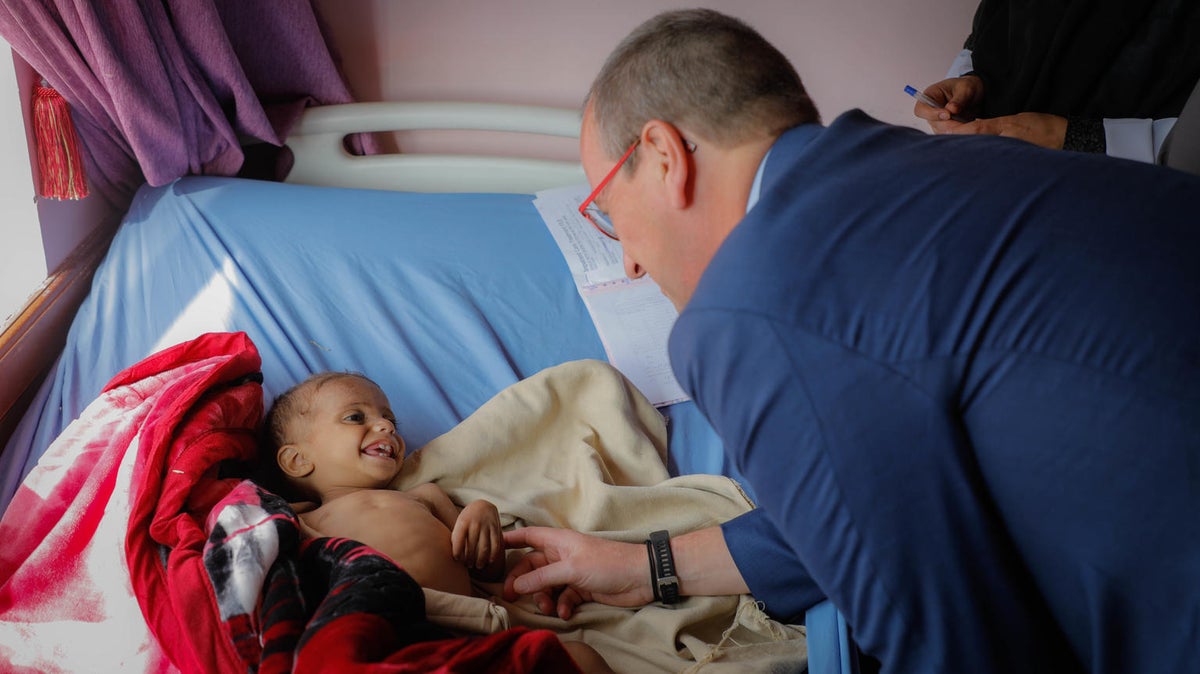
Afghanistan
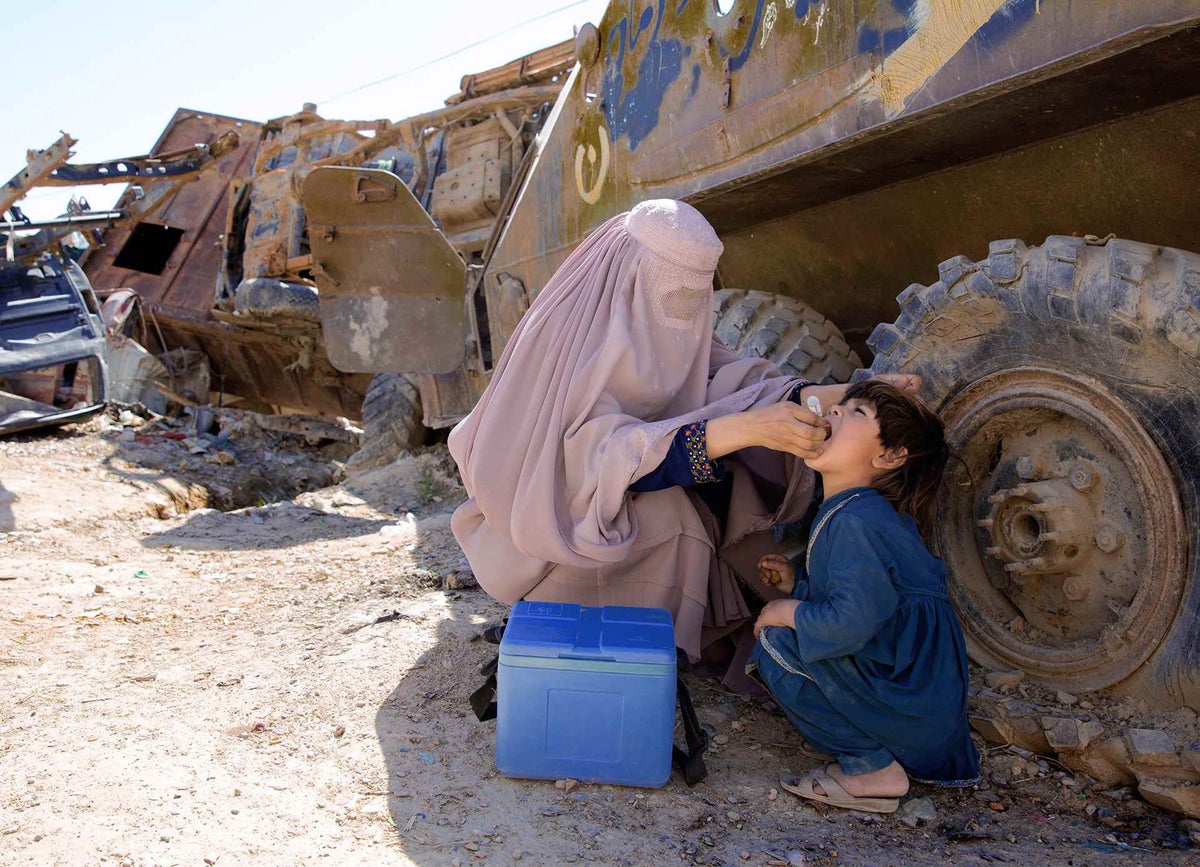
Afia is just 19, but has one of the most important jobs in Afghanistan. She is one of the 70,000 workers committed to eradicating polio — a disease that can cause paralysis, and in severe cases, can be life-threatening.
Female polio workers are so crucial in places like Afghanistan because only women are allowed to access a family's home to check that every child has been vaccinated.
While most women are confined to their homes, Afia travels fearlessly throughout her community because she believes that no child should be paralysed by polio.
Afghanistan has the highest number of polio cases in the world and is just one of four countries - Nigeria, Pakistan and Papua New Guinea- that still carries the virus.
In March this year, polio workers vaccinated almost 10 million children across Afghanistan.
Children in Afghanistan
UNICEF will remain on the ground in Afghanistan supporting vulnerable children and their families. We can't do this without you.
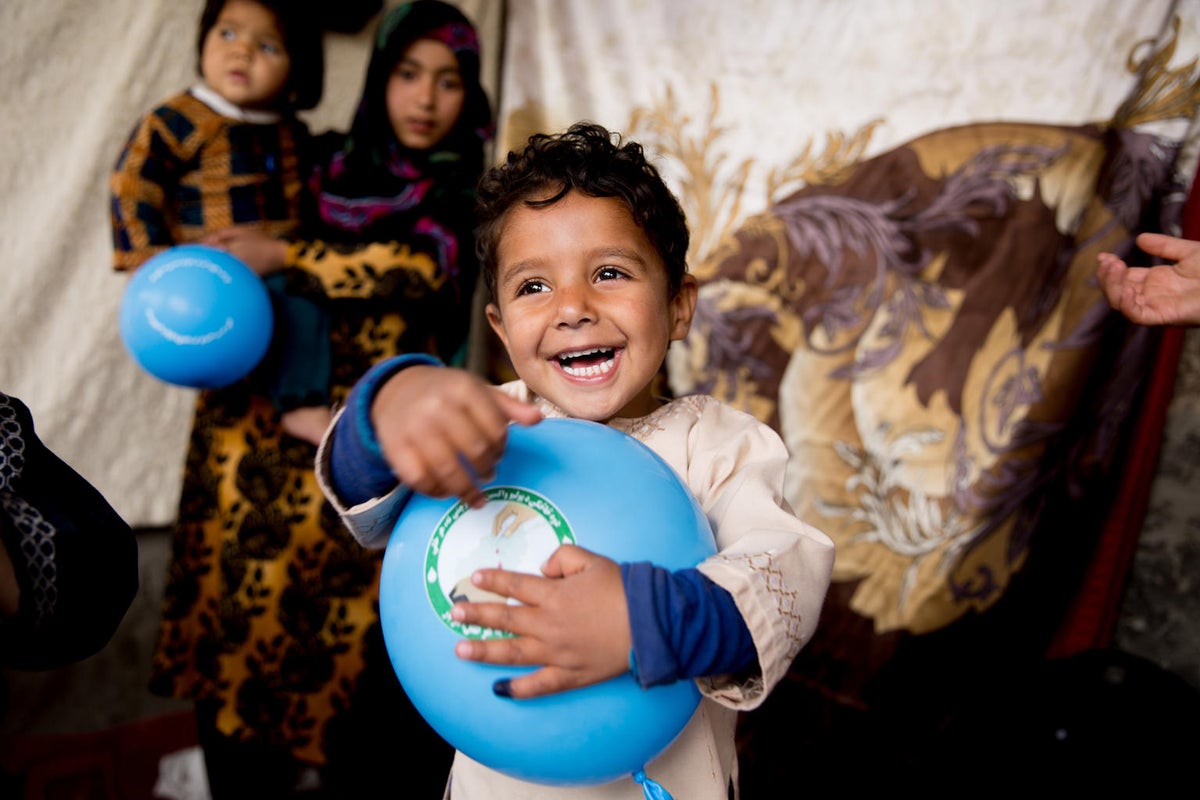
Somalia
Conflict, insecurity, drought and famine have plagued Somalia for more than two decades. Even today, about a third of the population is still in crisis and in need of immediate food and livelihood help. A shocking 2.6 million people are internally displaced.
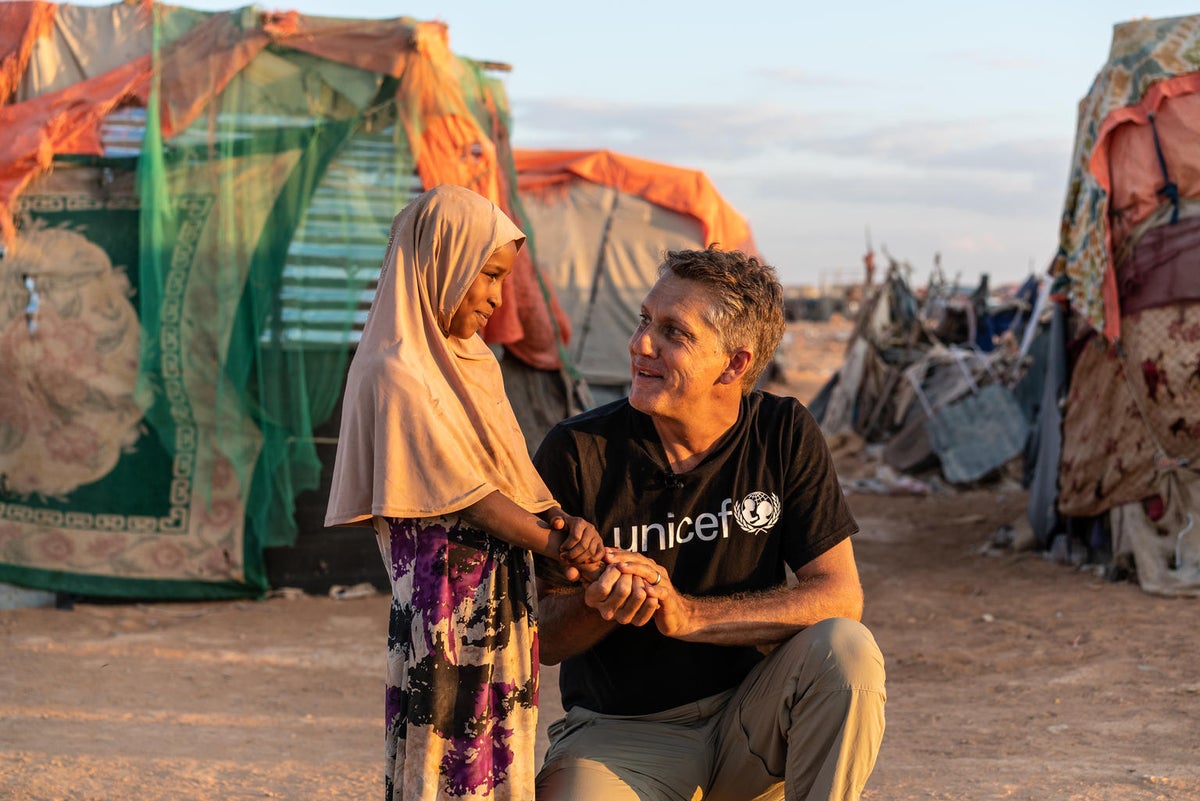
On top of this, the country is also facing one of the worst outbreaks of cholera. UNICEF and partners have provided almost 2 million people with temporary access to safe water and lifesaving services to hundreds of thousands of children and women, including emergency vaccinations.
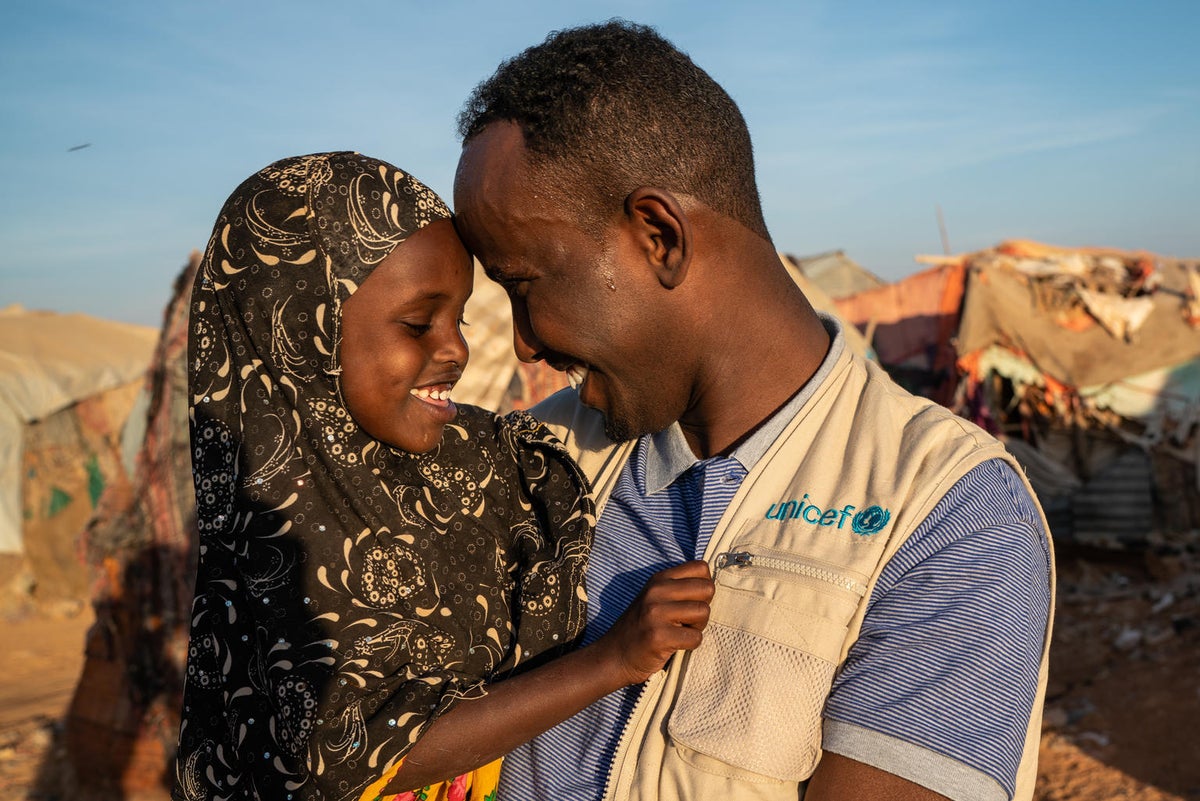
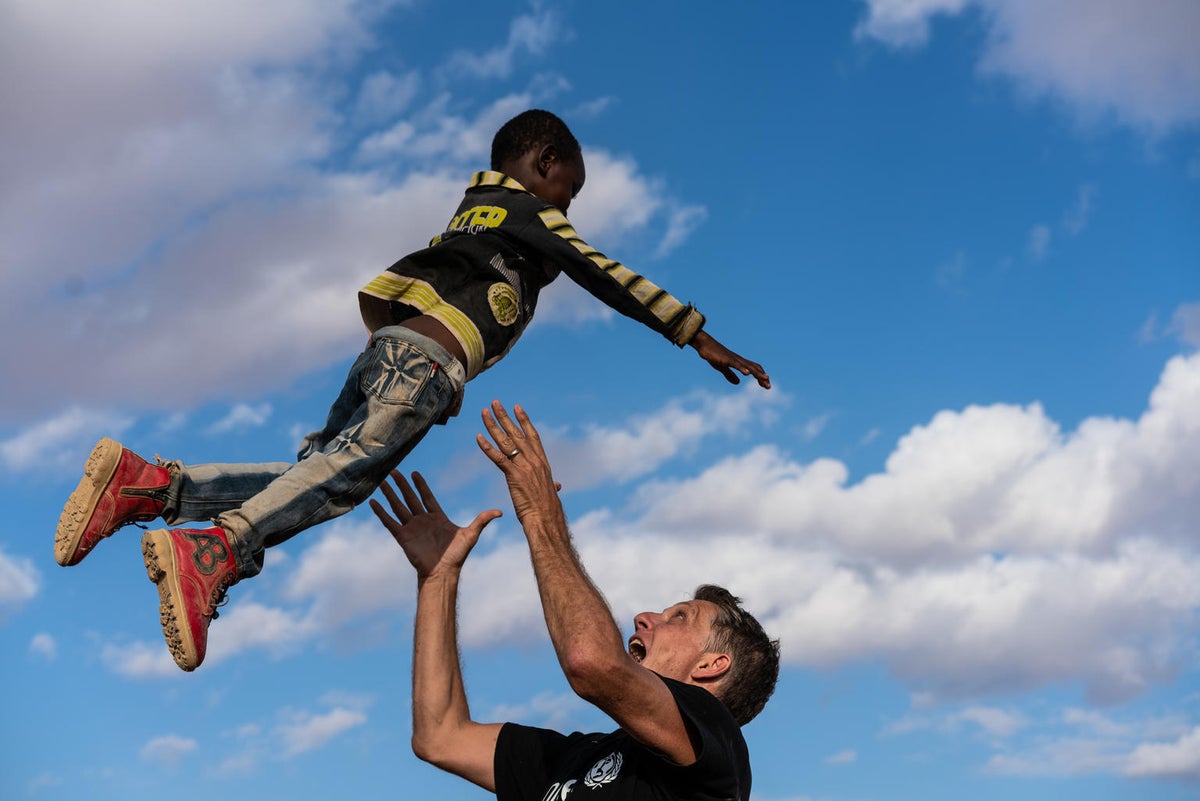
Stand by children in 2019
UNICEF Australia has an amazing group of supporters called Global Parents who make an ongoing pledge to protect and support children through their first 1,000 days of life. By signing up with a monthly gift, our Global Parents make a beautiful commitment: that wherever a child is born and whatever comes their way, we'll give them a life, a chance, a choice.
You can help us continue this critical work for kids, wherever the need is greatest.
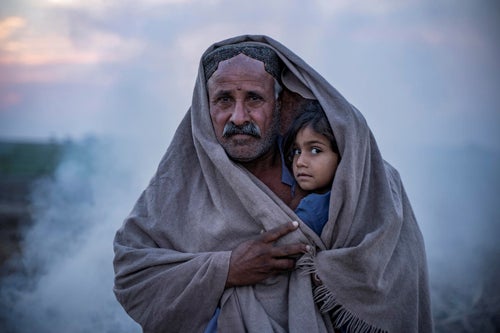
Become a Regular Donor
For every child in crisis.
Related articles
Stay up-to-date on UNICEF's work in Australia and around the world



